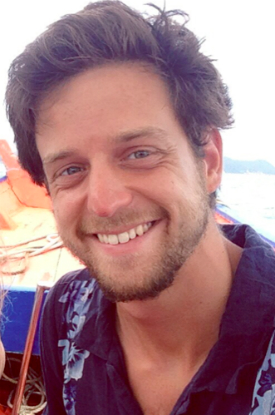
What position do you hold at ARCC and why do you like working there?
Phil: I have led one summer trip and one GAP trip with ARCC, and I plan on working for ARCC again this summer. During college I spent 7 weeks in Peru, and after college I spent one year in India, which each were monumentally important periods in my life. So I know how travel and cultural exchange can profoundly inform one’s life.
It is a privilege to be in a position to facilitate that unique experience for young adults. Traveling as a group, specifically, is a powerful relationship-building lifestyle, and I am proud of all the lifelong friendships that have formed in my groups.
Last, the ARCC family atmosphere and support that they provide make me feel very fortunate to work there. The office staff and other trip leaders form a close-knit community that ultimately enhances the experience for leaders, students, and staff alike.
What is your favorite story of a participant's experience in the program?
Phil: We had one student who had not read much in high school, and had not been previously exposed to many human rights issues that we were about to encounter during our Gap semester.
One day, when talking about waste disposal in China, her eyes lit up and we could tell that her curiosity had been piqued about environmental issues, and, in turn, a number of interconnected social justice issues. She read more books during gap than during her entire four years in high school, and often led conversations about what she was learning.
Now, back home, she often posts articles on social media about human rights issues that we encountered, continuing to be a leader among her peers. She’d be the first to tell you how much fun she had on gap, but I am so proud to have seen her curiosity yield such positive growth for her.
What is one thing you would tell any future gapper?
Phil: I would tell a future gapper that the more you give, the more you get! This applies within the group – the more you positive energy you bring to your fellow students, the better the environment will be, which is good for everybody.
Also, the more effort you put in to getting to know communities you visit, the more you will learn. Of course, there is a balance, and be sure to prioritize self-care to make it through the entire program healthy and energized. But don’t be afraid to use free time to read, explore, and be open to any new experience. You will be glad you did!
How does going on a gap year with ARCC prepare young people for college?
Phil: This is an incredible learning experience that they would not be able to get in their first year in college. After this gap semester, my students were more ready for college than I ever was when I went straight from high school. It gives them the opportunity to ponder their impact in a global society, while truly seeing the world.These are issues that they will study in college, and a gap semester puts those studies in context.
Also, by being so removed from the freshman party scene, many of my students talked about how happy they were to be traveling while their friends were just engaging in the normal freshman social scene. By traveling with the same people for three months, we all learned interpersonal skills which will benefit them with roommates, classmates, professors, and all other relationships they form in college.
What is the level of cultural immersion your gappers receive?
Phil: We had a significant amount of cultural immersion in all four countries. We had homestays in China and Thailand, and worked in rural villages in Cambodia. In Vietnam, we spent a lot of our time in Friendship Village, a home for special needs people affected by the Vietnam/American War.
The rural cultural immersion were highlights for many students, because we could truly learn what it was like to live in places in a seemingly opposite context from our lives back home. But students also enjoyed exploring cities like Beijing, Ho Chi Minh City, Phnom Penh, Bangkok, etc. as we sampled different foods (and learned to cook!) toured different neighborhoods, and met college students in multiple countries.